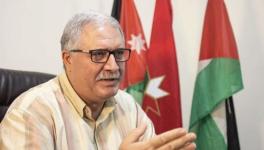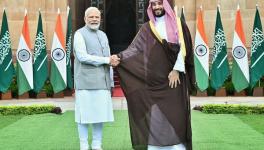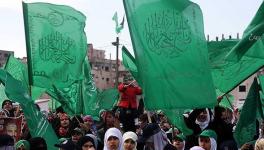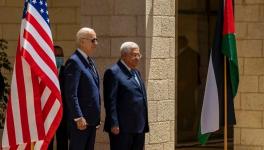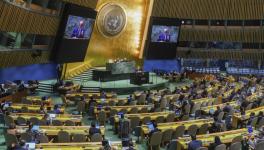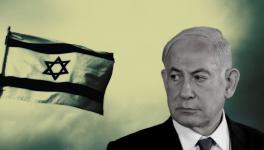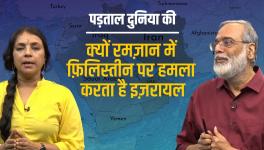The Geopolitical Syrian Puzzle
Saddam Hussein called the first Iraq war the “mother of all battles”. Wait a minute before you blame me for quoting a dead “despised dictator”. Look at today’s Middle East and North Africa.
Barring some hit-and-run or run-after-being hit military campaigns such as the Libya bombing of 1986 or the multinational forces in Lebanon during 1983-84, the Iraq war was the first major direct American intervention in the region. In 1991, the Americans came to the Middle East to stay in there. And they did it. Twelve years later, Iraq was bombed again, destroyed and its president was assassinated. The country is now at war with itself. Three years later in 2006, Lebanese Shiite group Hezbollah, a permanent non-state enemy of the American-Israeli-Saudi war trinity, was bombed by Israel under the blessings of Washington. The 30-day bombing left massive destruction in Lebanon, but Hezbollah still survived, thereby delaying the imperial war plans. But it all resumed in 2011 when President Barack Obama “led from behind” another bombing campaign on Libya, toppled the regime in Tripoli and executed the leader, Moammer Gadhafi. Just two years later, Obama is gearing up for another war—this time on Syria. The region is in a bloody chaos, grappling with a humanitarian catastrophe. After all, Saddam Hussein was not completely wrong.
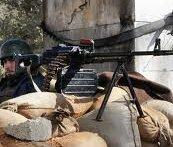
This time, Obama is planning a 60-90 days bombing on this country of 21 million people. He initially called it a “limited strike”. But we all knew from the beginning that the real target was a regime change in Damascus. Those who are not convinced can read the Senate resolution on Syria that stresses the need to “change the momentum on the battlefield”. Like previous wars, the American establishment and its satellite nations have come up with their own excuses, backed up by intelligence claims, to defend action on Syria. Like previous cases, these intelligence claims could anytime turn out to be fairy tales. But unlike previous wars, an attack on Syria could be very dangerous, perhaps more dangerous than most of us imagine now. Because, today’s Syria is not just a country where an armed rebellion is challenging a despot (say a Libya-like situation). Nor it’s a country where an isolated dictator, weakened by external bombing and decade-old sanctions, would go underground in the wake of an invasion (say another Iraq). Syria is already a geopolitical battlefield where different powerful actors are already present, either directly or through their proxies.
Sectarian War
No doubt, there are genuine discontents against the Bashar al-Assad regime. And the government’s response to the early protests was brutal. But the opposition failed to garner enough political capital to challenge the regime and was, or because of that, carried way by the plans made in other regional capitals. The opposition gained strength on sectarian lines in a multi-ethnic, multi-religious country where the ruling clan belongs to a minority community. Look at Syria’s complex demographics. It is estimated that three-fourths of the country's 21 million people are Sunnis, including most of the Kurdish minority in the northeast. The Alawite minority, which the Assad family belongs to, is believed to be around 7% of the population. The Alawites, Shias, Ismailis, Druze and other non-Sunni Muslims make up close to 16% of the population, while the Christians account for 10%.
The Alawites, a historically marginalized sect in Syria, came to power for the first time in 1966 through a coup against the Sunni regime in Damascus. Syria’s coups and counter-coups continued until Hafez al-Assad, the father of President Bashar, seized power through a bloodless coup against Alawite rival Salah Jadid. Hafez consolidated power through the Baath Party whose secular, socialist and dictatorial ideas shaped the modern Syria. Despite its dictatorial tendencies, the regime won the support of a substantial chunk of the population, especially that of the religious minorities. But it doesn’t mean that it faced no crisis. Sunni Islamists’ opposition to the government is nothing new. In late 1970s the Syrian Muslim Brotherhood led an insurgency against the Baathist regime, which was crushed in Hama in 1982. The Hama crackdown, which killed tens of thousands of people, drove the radical Islamists underground, but not the Islamist opposition towards the regime, which we saw gaining momentum in the wake of ‘Arab Spring’ protests.
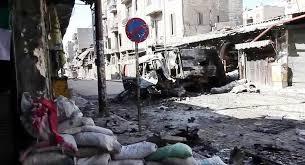
In no time the protests grew on sectarian lines. The rebels fighting President Assad are largely made up of Sunnis. The involvement of the Sunni regimes in the region in favour of the rebels, while the Shia forces backed the government also painted the crisis in sectarian colours. Understanding the Who and Who of the Syrian opposition is as complex an exercise as making sense of the Syrian crisis itself. Reports suggest that all varieties of Islamist groups are active in today’s Syrian battlefield. Organisations ranging from the Muslim Brotherhood to the Al Nusra Front, which is affiliated with al-Qaeda, are fighting the government troops. John Kerry, the US state secretary, might have told the Senate that only 20-25% of the rebels are “bad guys”. But several reports emanating from Syria suggest otherwise. Radical Islamists are the fiercest fighters among the rebels. In late July, David Shedd, deputy director of the US Defense Intelligence Agency, said publicly that there were 1,200 rebel groups in Syria. "Left unchecked, I'm very concerned that the most radical elements will take over larger segments," said Shed. The situation is not far from that of the Afghanistan of late 1980s. At present, Assad is the unifying forces of these Sunni Islamists. No one knows what will happen to the country if he’s gone.
Regional War
Syria is the closest ally of Iran in the Middle East. When protests broke out in that country, Iran’s rivals immediately picked up the geopolitical cues. For the Saudis, the fall of Mubarak in Egypt was a body blow. They had long seen Mubarak as a great Sunni wall standing against Iran. The Mubarak’s collapse and the spread of protests to Bahrain, a Shia majority Gulf country ruled by a Sunni royal family, dramatically intensified tensions between Iran and Saudi Arabia. The Saudis sent troops to Bahrain to save the royal family by massacring protesters. But when protests broke out in Syria, they coordinated with Qatar, Jordanian and Turkey to pump money and weapons into the anti-Assad rebellion. On the other side, Iran has supplied weapons to Syria, while Hezbollah, which has long allied itself with Damascus and Tehran, crossed the border to join the civil war in favour of the government.
On May 25, Sheikh Hassan Nasrallah, the leader of Hezbollah, declared that the Syrian war is “our war”. Hezbollah’s intervention was crucial in the Assad government’s reclaim of Qusayr, a strategically important town on the Lebanese-Syrian border, from the rebels. Any attempt to unseat Assad from Damascus would weaken Hezbollah’s standing in the region as Assad’s Syria is a vital link between the party and its backers in Tehran. And for Iran, the possibility of the emergence of a pro-Saudi regime in Damascus would diminish its influence and weaken its relative power the region. Turkey, on the other side, is riding on the Islamist wave the Arab Spring has unleashed, while Jordan and the Gulf countries have joined the Saudi caravan. So, this is the scene: You have Sunni rebels on the one side backed by the wealthy Sunni kingdoms that do cherish dreams of beating back Shiite Iran’s growing influence, while on the other side, an Alawite regime, backed by Iran and the Shiite Hezbollah, both of which are war of the Gulf-Atlantic-Israeli efforts to destroy them, is fighting the rebels. It’s called the geopolitical Syrian puzzle
Global War
Whether the US Congress approves Obama’s war plan or not, the president has the right to strike Syria, says Kerry. The US has already sent at least four of its cruise missile-carrying ships to the Mediterranean Sea. Its Fifth Fleet is based off the Bahrain coast in the Gulf. War plans are ready and are waiting Obama’s order. When George W Bush attacked Iraq, his plans met with strong opposition in international forums and among the global civil society, but no nation had militarily challenged America’s war. A war on Syria may not yield the same response from other powers.
Russia under Vladamir Putin is reasserting itself. Look the recent policies of Kremlin, it’s not difficult to see that the country is out of its’ “strategic retreat”. And the ties between Russia and the US have hit a rock bottom after the Snowden fiasco. Despite all American warnings and pleadings, Russia offered asylum to the American fugitive and thereby publicly challenged the so-called “American power”. When it comes to Syria, President Putin shows the same assertiveness. Syria is one of the strongest allies of Moscow in the Middle East. Besides, Russia knows that the Iran-Syria-Hezbollah axis is the last remaining challenge to the American plans to reshape the region. Putin has dropped enough hints that Russia would act to defend Assad in the wake of a unilateral American strike. Moscow has also dispatched a missile cruiser, Moskva, to the eastern Mediterranean, which will take over operations from a naval unit in the region and will be joined by a destroyer from Russia's Baltic Fleet and a frigate from the Black Sea Fleet.
Yes We Bomb
It’s not going to be another Iraq war. The stakes are much higher. The dangers, too. President Obama and his secretary tell us that they speak on behalf of the international community. Look at St Petersburg, where the G-20 summit is happening. Mister Audacity of Hype stands almost isolated out there. Russia, China, the European Union and India are all saying NO to American plans to bomb Syria. Even Pope Francis says so. David Cameron, the prime minister of the “small island that nobody cares about except the oligarch who bought Chelsea”, wants to back the Yes-We-Bomb plan, but his country barred him from doing so. François Hollande, the ‘socialist-only-in-the-name’ president of France is the only remaining backer. The question is whether Obama listen to the actual international public opinion. But history tells us imperialism never learns from its mistakes.
Disclaimer: The views expressed here are the author's personal views, and do not necessarily represent the views of Newsclick
Get the latest reports & analysis with people's perspective on Protests, movements & deep analytical videos, discussions of the current affairs in your Telegram app. Subscribe to NewsClick's Telegram channel & get Real-Time updates on stories, as they get published on our website.










